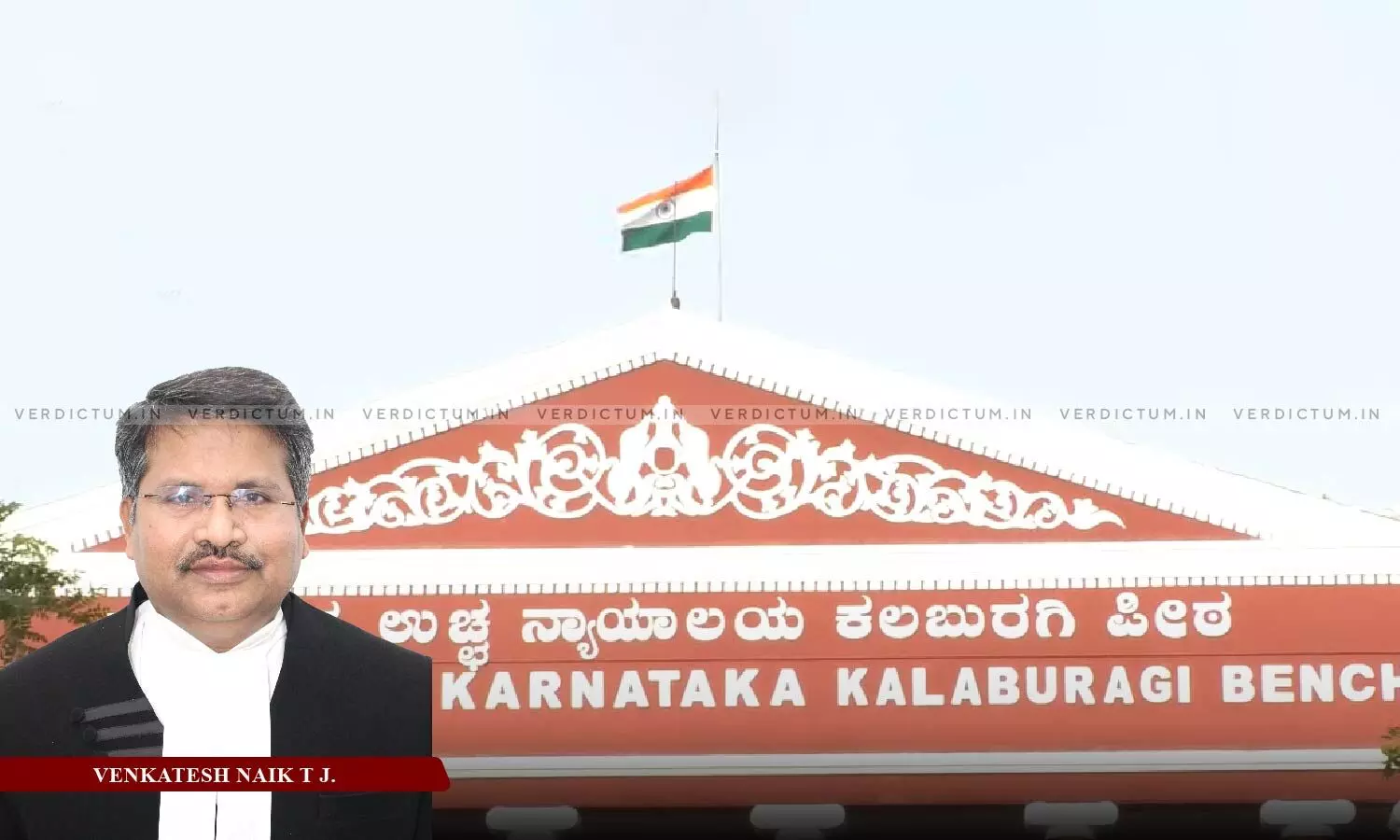
Merely Using Threatening Language Without Required Mens Rea Is Insufficient To Constitute Criminal Intimidation: Karnataka HC
 |
|The Karnataka High Court, Kalaburagi Bench, allowed a Criminal Petition filed by accused individuals seeking to quash a Criminal Case filed under Section 506 of the Indian Penal Code (IPC).
The Court emphasised that for an act to be considered criminal intimidation, there must be a deliberate intention to cause fear or coerce the Complainant into performing an illegal act. Merely using threatening language without this intention is insufficient to constitute criminal intimidation, the Court asserted.
The Court noted that the alleged incident occurred on May 20, but the FIR was registered on May 22, 2020, without noting valid justification. The Court also noted that the FIR appeared to be an attempt to use criminal proceedings to gain an advantage in a civil suit.
“It is clear that in order to constitute offence of criminal intimidation, there must be threat with intention to cause alarm to the complainant or to do any act which is not legally bound to do. Mere expression of any words without any intention to cause alarm to the complainant or to make him to do, or omit to do any act, is not sufficient to bring the act within the definition of criminal intimidation. Therefore, in the instant case, even ingredients of Section 506 of the IPC are not made out against the petitioners”, Justice Venkatesh Naik T noted.
Advocate R. S. Lagali appeared for the Petitioners, Government Pleader Sharanabasappa M. Patil appeared for Respondent no. 1 and Advocate Santosh H. Patil appeared for Respondent no. 2.
Respondent no. 2 (Investigating Officer) investigated and submitted a charge sheet against accused Nos.1 to 3 (Petitioners) for the offences punishable under Sections 448, 504 and 506 read with Section 34 of the IPC. The Trial Class took cognizance of the complaint under Section 190(1)(a) of the Code of Criminal Procedure, 1973, (CrPC) and issued a summons for accused Nos.1 to 3 to stand trial for the said offences. A Criminal Petition was filed by accused nos.1 to 3 seeking to quash the order passed by the Trial Court for the offences.
The Court noted that the alleged incident occurred on May 12, 2020, at approximately 2:00 p.m., but the FIR was filed on May 22, 2022, without citing any explanation. The Court noted that the Trial Court granted interim relief in favour of the Petitioners, allowing them to enter the premises. The Court referred to the case of State of Andhra Pradesh V. Madhusudhan Rao [(2008) 15 SCC 582] and asserted that there was no evidence to support the claim that the Petitioners trespassed into the Complainant's house. Therefore, the Court held that the term "house-trespass" under Section 442 of the IPC, punishable under Section 448 of the IPC, does not apply.
The Court observed that the Petitioners were accused of intentionally insulting someone to provoke a breach of peace on a specific date and time. However, after examining the charge sheet, the Investigating Officer did not mention the elements of Section 504 of the IPC. Consequently, the Court held that Section 504 of the IPC conditions were not satisfied, citing the case of Fiona Shrikhande V. State of Maharastra and Another [(2013) 14 SCC 44].
The Court noted, “Further, respondent No.2 made allegation that on the relevant date and time, the petitioners intentionally insulted him to provoke his breach of peach, but on perusal of the charge-sheet at column No.17, the Investigating Officer has not stated about the ingredients of Section 504 of the IPC. Therefore, in the case on hand, ingredients of Section 504 of the IPC are not made out”.
The Court held that continuing with the criminal proceedings against the accused parties would abuse the legal process and should be dismissed.
“In view of the preceding analysis, I am of the view that F.I.R. was lodged by respondent No.2 without any probable cause and with nullius. Further, the complaint is clearly civil in nature and in order to offshoot from civil suit, the complaint has been lodged. Hence, the continuation of the criminal proceedings against the petitioners is nothing but abuse of due process of law and is liable to be quashed”, the Court noted.
Accordingly, the Court allowed the Petition and quashed the Criminal Case.
Cause Title: Sugurappa @ Sugurayya Swami v The State of Karnataka
Click here to read/download the Order